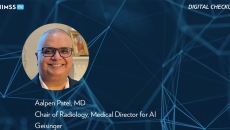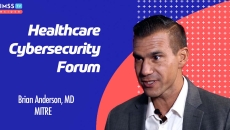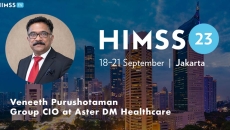Artificial Intelligence
Geisinger medical director of AI Dr. Aalpen Patel describes the role of AI in healthcare and some of the health system's initiatives, including an effort that seeks to prioritize eligible patients who are overdue for colorectal screenings.
Such an approach, the group said, would allow oversight organizations to tailor their regulations to the particular risks linked to AI.
Todd Gottula, president and cofounder of Clarify Health, says obtaining and cleansing data assets can drive better outcomes, but the presentation matters almost as much as the data itself.
As cyberattacks become more sophisticated, endpoint protection and staff training are key to preventing breaches, says Renee Broadbent, CIO and information security officer at SoNE Healthcare.
According to Dr. Brian Anderson, chief digital health physician at MITRE, hackers are using AI models to write code for attacks. While defensive AI tools can monitor networks for malicious traffic, humans should be part of the process.
Automation, and now AI, can handle the easy tasks such as administrative form filling.
Use cases must make sense, rather than being forced because of emerging tech or AI, says Aster DM Healthcare Group CIO Veneeth Purushotaman.
A tech platform embedded at the bedside, a simulation center, AI and interoperability align with strategic goals regarding patient focus, say assistant VPs Tarra Kerr and Ashok Kurian.
Mytonomy offers patient education and has expanded its offerings to move patients smoothly through pre- and post-procedure functions, says CEO and cofounder Anjali Kataria.
The best AI innovation from an investment perspective is in making business models viable, says Eric Epstein, with Santé.









